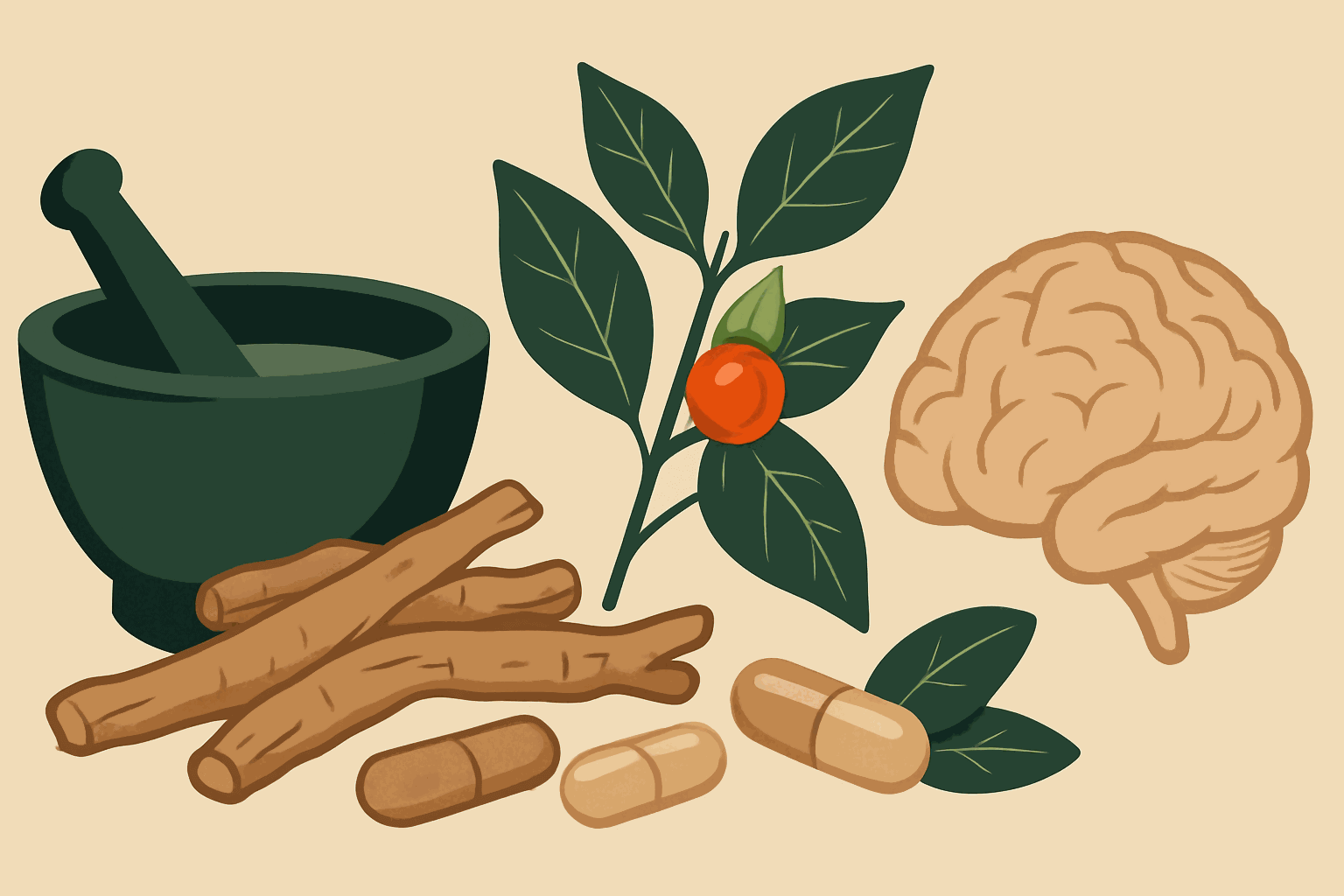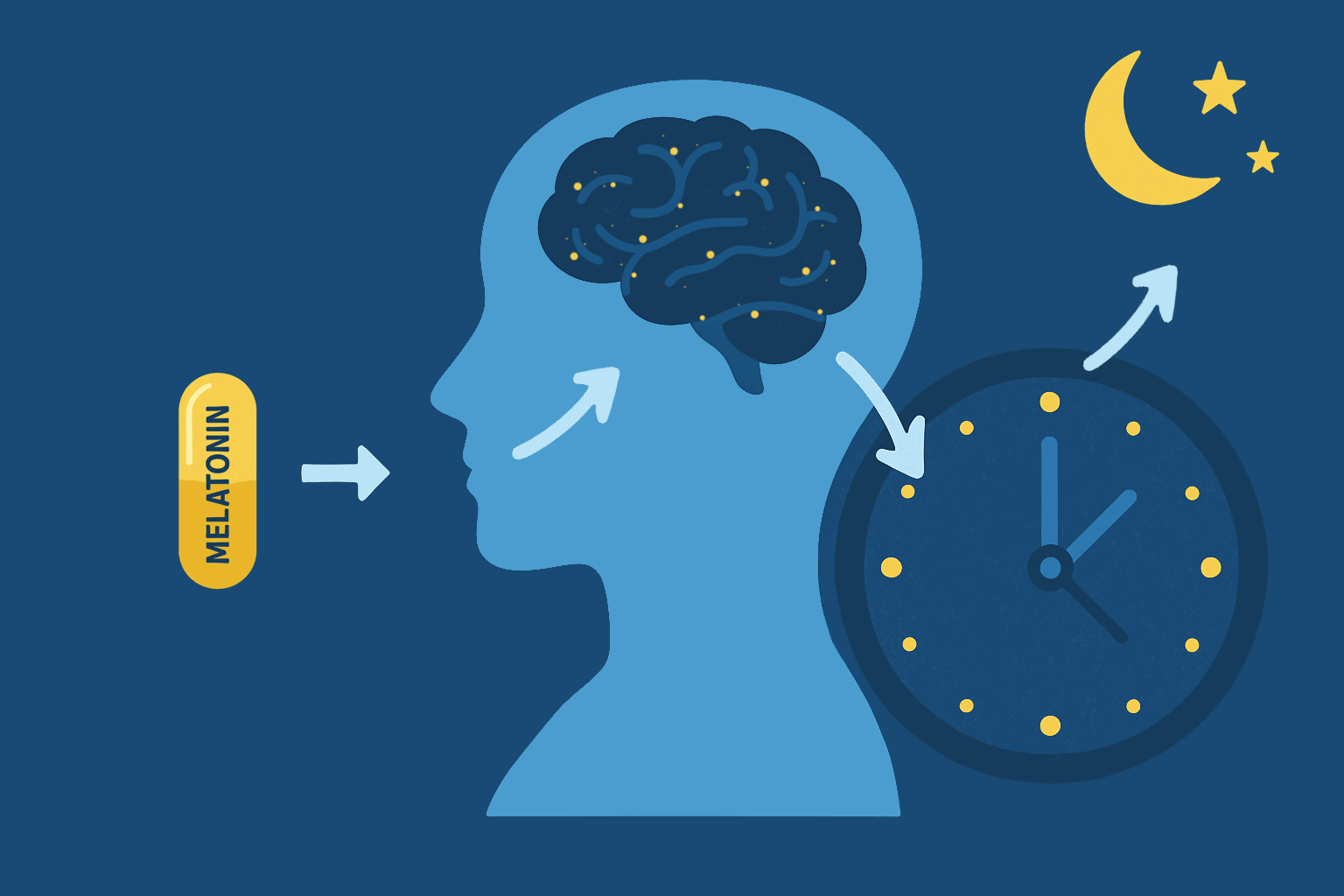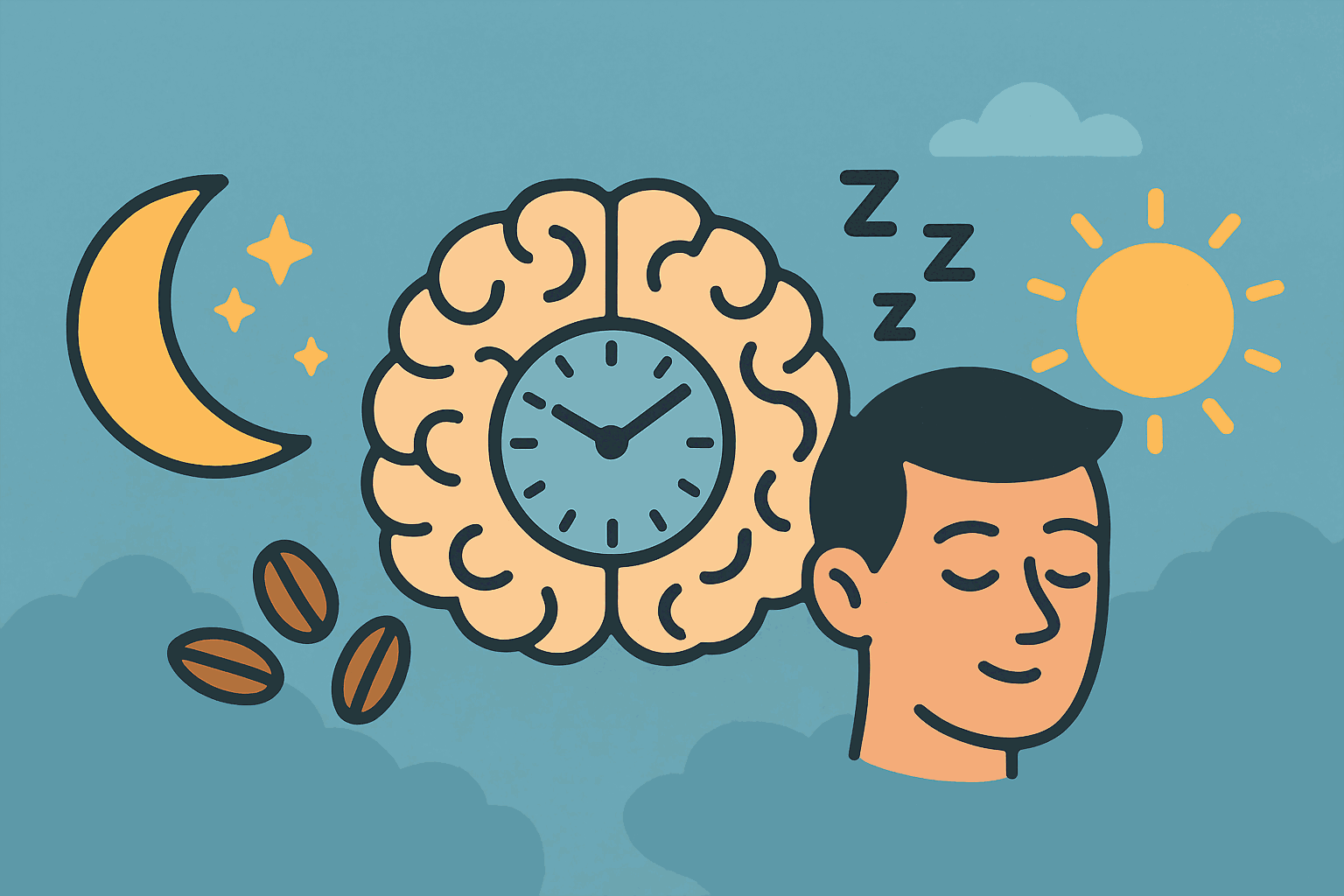
Ashwagandha: Unpacking the Science Behind This Ancient Adaptogen
- Olivia Hart
- Herbal medicine , Adaptogens , Health , Wellness , Mental health
- May 11, 2025
Table of Contents
Fast Facts: Ashwagandha TLDR
- Ancient Roots, Modern Science: Ashwagandha ($Withania$ $somnifera$) is an adaptogenic herb with a long history in Ayurvedic medicine, now studied for its health benefits.
- Stress and Anxiety Buster: Research indicates ashwagandha may help reduce stress, anxiety, and levels of the stress hormone cortisol.
- Sleep Promoter: Evidence suggests it can improve sleep quality, help you fall asleep faster, and increase total sleep time, especially for those with insomnia.
- Active Compounds: Its benefits are largely attributed to withanolides, a group of naturally occurring steroidal lactones.
- Generally Safe for Short-Term Use: Most people tolerate ashwagandha well for up to three months; common side effects are mild (e.g., drowsiness, mild stomach upset).
- Consult Your Doctor: Long-term safety isn’t fully known, and it may interact with medications or be unsuitable for certain conditions (e.g., pregnancy, specific cancers, thyroid disorders). Always consult a healthcare professional before starting any new supplement.
Introduction: What is Ashwagandha?
$Withania$ $somnifera$ (L.) Dunal, an evergreen shrub thriving in the tropical and subtropical climates of Asia, Africa, and Europe, is more famously known by its Sanskrit name, ashwagandha. This name poetically translates to “smell of a horse” (“ashwa” for horse, “gandha” for smell), alluding to the distinct aroma of its roots and perhaps to the strength and vitality it’s reputed to impart [1]. While sometimes referred to as “Indian ginseng” or “winter cherry,” ashwagandha is botanically distinct from the ginseng family.
For millennia, ashwagandha root has been a cornerstone in traditional Indian systems of medicine, namely Ayurveda and Unani. It’s classified as an adaptogen – a substance believed to enhance the body’s resilience to various stressors, be they biological, physical, or chemical, in a non-specific way [2, 3]. This unique property helps the body “adapt” and maintain equilibrium.
The primary parts of the plant used medicinally are the roots and sometimes the leaves, though their chemical compositions differ [4]. Most commercial supplements utilize root extracts, but some formulations combine both root and leaf extracts. The species name, somnifera, hints at another of its celebrated properties, deriving from the Latin word for “sleep-inducing” [5]. Beyond promoting restful sleep, ashwagandha is widely recognized for its potential to alleviate stress and anxiety.
The therapeutic prowess of ashwagandha lies in its rich tapestry of phytochemicals. Key among these are steroidal lactones (withanolides) and alkaloids. While withanolides, such as withaferin A and withanone, are considered the primary drivers of ashwagandha’s effects, emerging preclinical research suggests that other non-withanolide components also play a crucial role in its multifaceted actions [6, 7, 8].
The Science Behind Ashwagandha: How Might It Work?
Adaptogens like ashwagandha are thought to modulate the body’s stress response system, primarily the hypothalamic-pituitary-adrenal (HPA) axis, and influence neurotransmitter pathways. By helping to regulate cortisol (the primary stress hormone) levels and enhancing resistance to stress, ashwagandha may support overall well-being. Its antioxidant properties also contribute to protecting cells from damage caused by oxidative stress.
Potential Health Benefits: What the Evidence Says
Stress and Anxiety Reduction
One of the most well-studied benefits of ashwagandha is its potential to mitigate stress and anxiety. Several clinical trials suggest that ashwagandha extracts can lead to significant reductions in perceived stress and anxiety levels, alongside a measurable decrease in serum cortisol levels [7, 9].
A notable endorsement comes from a task force of the World Federation of Societies of Biological Psychiatry (WFSBP) and the Canadian Network for Mood and Anxiety Treatments (CANMAT). They have provisionally recommended specific daily doses of ashwagandha root extract for managing generalized anxiety disorder. However, they emphasize the need for more extensive research to solidify this recommendation [10]. The typical dosages in these studies often range from 240 mg to 600 mg of a standardized extract per day.
Improved Sleep Quality
Living up to its somnifera name, ashwagandha shows promise in enhancing sleep. A meta-analysis of several studies concluded that ashwagandha extract intake demonstrated a significant, albeit small, positive effect on overall sleep [5, 11]. The benefits appear more pronounced in individuals diagnosed with insomnia. Participants in various studies have reported improvements in:
- Sleep quality: Feeling more rested upon waking.
- Sleep efficiency: Spending a higher percentage of time in bed actually asleep.
- Total sleep time: Sleeping for longer durations.
- Sleep latency: Falling asleep more quickly.
Dosages in sleep studies often range from 300 mg of root extract taken twice daily to 600 mg once daily, typically consumed for 8-12 weeks.
Other Potential Areas of Interest
While stress and sleep are primary focuses, research (often preliminary) also explores ashwagandha’s role in:
- Cognitive function: Some studies suggest potential improvements in aspects of memory, attention, and information processing speed [8].
- Athletic performance: It may enhance physical performance, including strength and oxygen use during exercise [12].
- Thyroid function: Ashwagandha might influence thyroid hormone levels, which requires careful consideration, especially for those with pre-existing thyroid conditions (see Safety section).
Understanding Dosage and Forms
Ashwagandha is available in various forms, including:
- Capsules and Tablets: Containing powdered root or standardized extracts.
- Powders: Pure root powder that can be mixed into liquids.
- Tinctures: Liquid extracts.
Dosage varies widely depending on the preparation and the condition being addressed. Many studies use standardized root extracts (e.g., KSM-66, Sensoril) with concentrations of withanolides typically ranging from 1.5% to 5%. Common daily doses in research range from 250 mg to 600 mg of a standardized extract, sometimes divided into two doses. For non-standardized root powder, doses can be higher, from 3 to 6 grams daily.
It is crucial to follow the manufacturer’s recommendations or consult a healthcare professional to determine the appropriate form and dosage for your specific needs.
Safety Profile and Potential Side Effects
Ashwagandha is generally considered safe and well-tolerated for short-term use, typically up to three months. However, its long-term safety profile has not been extensively studied [1, 9].
Common side effects are usually mild and may include:
- Drowsiness
- Loose stools or mild diarrhea
- Nausea
- Mild gastrointestinal upset
More serious, though rare, side effects have been reported:
- Liver injury: There are isolated case reports of liver problems associated with ashwagandha use, although a direct causal link isn’t always clear [1, 4]. Individuals with pre-existing liver conditions should exercise caution.
- Thyroid function modulation: Ashwagandha may increase thyroid hormone levels. This could be beneficial for individuals with subclinical hypothyroidism but problematic for those with hyperthyroidism or those on thyroid medication [13].
- Drug interactions: Ashwagandha could potentially interact with:
- Sedatives (may increase drowsiness)
- Diabetes medications (may lower blood sugar further)
- Blood pressure medications (may lower blood pressure further)
- Immunosuppressants (may stimulate the immune system)
- Thyroid hormone medications
Contraindications and Precautions:
- Pregnancy and Breastfeeding: Due to insufficient safety data, ashwagandha use is generally not recommended during pregnancy (historically, high doses were sometimes used as an abortifacient) and breastfeeding.
- Hormone-sensitive prostate cancer: Some experts advise against its use in men with this condition due to potential hormonal effects [1].
- Autoimmune diseases: As ashwagandha might stimulate the immune system, it could theoretically worsen conditions like rheumatoid arthritis, lupus, or multiple sclerosis.
- Surgery: It may slow down the central nervous system. It’s advisable to discontinue ashwagandha at least two weeks before scheduled surgery.
Making an Informed Decision: Is Ashwagandha Right for You?
Ashwagandha extracts hold promise as a natural aid for reducing stress and anxiety and improving sleep quality. However, the variability in preparations, dosages used in studies, and the spectrum of withanolide content make it challenging to provide universal recommendations [9].
Key considerations before trying ashwagandha:
- Consult Your Healthcare Provider: This is paramount, especially if you have underlying health conditions, are taking medications, are pregnant or breastfeeding. A professional can help assess potential interactions and suitability.
- Choose High-Quality Supplements: Look for products from reputable manufacturers that undergo third-party testing for purity, potency, and contaminants. Standardized extracts ensure a consistent level of active compounds (withanolides).
- Start with a Low Dose: Gauge your individual response and tolerance before considering higher doses.
- Be Patient and Realistic: Supplements like ashwagandha typically don’t work overnight. It may take several weeks of consistent use to notice benefits. It is a supportive measure, not a cure-all.
- Monitor for Side Effects: Pay attention to how your body responds and discontinue use if you experience adverse effects.
Conclusion: A Promising Herb with a Need for Continued Research
Ashwagandha ($Withania$ $somnifera$) stands out as a venerable herb with compelling, science-backed potential, particularly in the realms of stress management and sleep enhancement. Its adaptogenic properties offer a natural approach to bolstering resilience in our often-hectic modern lives.
While short-term use appears safe for most healthy individuals, the current body of research underscores the importance of a cautious and informed approach. The unknown long-term safety, potential for drug interactions, and unsuitability for certain populations highlight the necessity of professional medical guidance. As research continues to evolve, our understanding of this potent botanical will undoubtedly deepen, further clarifying its role in health and wellness.
Disclaimer
The information provided on BioBrain is intended for educational purposes only and is grounded in science, common sense, and evidence-based medicine. It is not a substitute for professional medical advice, diagnosis, or treatment. Always consult a qualified healthcare provider before making significant changes to your diet, exercise routine, or overall health plan.
References
- Mandlik Ingawale DS, Namdeo AG (2021) "Pharmacological evaluation of Ashwagandha highlighting its healthcare claims, safety, and toxicity aspects"
- Panossian AG, Efferth T, Shikov AN, Pozharitskaya ON, Kuchta K (2021) "Evolution of the adaptogenic concept from traditional use to medical systems: Pharmacology of stress- and aging-related diseases"
- Gerontakos SE, Casteleijn D, Shikov AN, Wardle J (2020) "A Critical Review to Identify the Domains Used to Measure the Effect and Outcome of Adaptogenic Herbal Medicines"
- Ministry of Ayush, Government of India (2024) "Safety of Ashwagandha, Withania somnifera. Report of the Expert Committee"
- Langade D, Thakare V, Kanchi S, Kelgane S (2021) "Clinical evaluation of the pharmacological impact of ashwagandha root extract on sleep in healthy volunteers and insomnia patients: A double-blind, randomized, parallel-group, placebo-controlled study"
- Holvoet H, Long DM, Law A, McClure C, Choi J (2022) "Withania somnifera Extracts Promote Resilience against Age-Related and Stress-Induced Behavioral Phenotypes in Drosophila melanogaster; a Possible Role of Other Compounds besides Withanolides"
- Speers AB, Cabey KA, Soumyanath A, Wright KM (2021) "Effects of Withania somnifera (Ashwagandha) on Stress and the Stress- Related Neuropsychiatric Disorders Anxiety, Depression, and Insomnia"
- Lopresti AL, Smith SJ (2021) "Ashwagandha (Withania somnifera) for the treatment and enhancement of mental and physical conditions: A systematic review of human trials"
- Salve J, Pate S, Debnath K, Langade D (2019) "Adaptogenic and Anxiolytic Effects of Ashwagandha Root Extract in Healthy Adults: A Double-blind, Randomized, Placebo-controlled Clinical Study"
- Ravindran AV, Balasubramaniam M, Lam RW (2016) "Canadian Network for Mood and Anxiety Treatments (CANMAT) 2016 Clinical Guidelines for the Management of Adults with Major Depressive Disorder: Section 5. Complementary and Alternative Medicine Treatments"
- Cheah KL, Norhayati MN, Husniati Yaacob L, Abdul Rahman R (2021) "Effect of Ashwagandha (Withania somnifera) on mental health: A systematic review and meta-analysis of randomised controlled trials"
- Bonilla DA, Moreno Y, Gho C, Petro JL, Odriozola-Martínez A, Kreider RB (2021) "Effects of Ashwagandha (Withania somnifera) on Physical Performance: Systematic Review and Bayesian Meta-Analysis"
- Sharma AK, Basu I, Singh S (2018) "Efficacy and Safety of Ashwagandha Root Extract in Subclinical Hypothyroid Patients: A Double-Blind, Randomized Placebo-Controlled Trial"
- Tandon N, Yadav SS (2020) "Safety and clinical effectiveness of Withania Somnifera (Linn.) Dunal root in human ailments"
- Lopresti AL, Drummond PD, Smith SJ (2019) "A Randomized, Double-Blind, Placebo-Controlled, Crossover Study Examining the Hormonal and Vitality Effects of Ashwagandha (Withania somnifera) in Aging, Overweight Males"
Tags :
- Ashwagandha
- Withania somnifera
- Adaptogen
- Stress reduction
- Anxiety relief
- Cortisol
- Sleep aid
- Herbal supplement
- Ayurveda
- Nootropics
- Natural remedies
- Evidence based medicine


